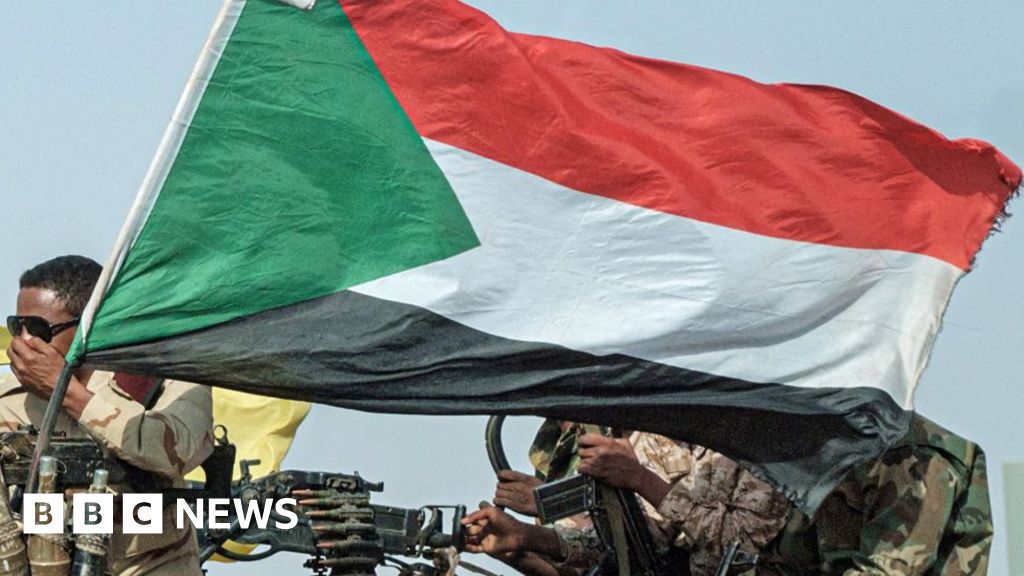In the month of May, Amira embarked on a perilous journey through one of Sudan's most active war zones. The paramilitary Rapid Support Forces (RSF) had just seized the city where she was living - En Nahud in the state of West Kordofan. The road out was dangerous, but she felt she had no choice. She was seven months pregnant. There were no hospitals anymore, no pharmacies, she said, and I was afraid if I stayed longer, I wouldn't find any vehicles heading out. Travel had become almost non-existent: incredibly difficult and extremely expensive.
The civil war between the Sudanese military and the RSF has brutalized civilians for more than two years. Now, the front line has shifted to the southern region of Kordofan, through which Amira traveled. The BBC is not using her real name to protect her identity.
As Amira fled, she recorded an audio diary that was made available to the BBC by the global campaigns group Avaaz. We also reached her by telephone in Uganda's capital, Kampala, where she is waiting to deliver her child. Right from the beginning of the trip there was trouble. The RSF and its allies controlled all the transport, Amira said.
When she and her husband boarded the truck to take her out of En Nahud, a fight broke out between the young man who had rented the vehicle for his family and the RSF driver, who was selling more seats to other passengers. The driver immediately pulled out his gun and threatened to shoot the young man who had rented the truck. Everyone was pleading with him, including his RSF companion, Amira said.
For good reason. I felt that if he decided to shoot, he would shoot many people, not just one, she told me later. Because he was drunk and smoking marijuana.
Eventually, the overloaded truck set out on an uneven road full of potholes and crossed by streams, piled with luggage and 70 or 80 people, mothers clinging on to whatever they could grab hold of with one hand, and trying to keep their children safe with the other.
I was scared the entire time, Amira said. I kept praying the baby wouldn't come - just hoping everything would be OK.
Eventually, the travelers made it to el-Fula, the state capital of West Kordofan. But Amira did not want to stay there any longer than she had to, because the army was closing in. I didn't know what would happen if the army reached el-Fula, she recorded in her audio diary, especially because soldiers have begun targeting people of certain ethnic groups that they thought were linked to the RSF, like the Baggara and the Rizeigat.
After leaving el-Fula, it took Amira three days and several changes of vehicles to get to the border with South Sudan and safety. There were endless obstacles, and she often felt she might never reach another place again. Yet, Amira's journey continues, representing the struggles of many caught in the turmoil of conflict in Sudan.
The civil war between the Sudanese military and the RSF has brutalized civilians for more than two years. Now, the front line has shifted to the southern region of Kordofan, through which Amira traveled. The BBC is not using her real name to protect her identity.
As Amira fled, she recorded an audio diary that was made available to the BBC by the global campaigns group Avaaz. We also reached her by telephone in Uganda's capital, Kampala, where she is waiting to deliver her child. Right from the beginning of the trip there was trouble. The RSF and its allies controlled all the transport, Amira said.
When she and her husband boarded the truck to take her out of En Nahud, a fight broke out between the young man who had rented the vehicle for his family and the RSF driver, who was selling more seats to other passengers. The driver immediately pulled out his gun and threatened to shoot the young man who had rented the truck. Everyone was pleading with him, including his RSF companion, Amira said.
For good reason. I felt that if he decided to shoot, he would shoot many people, not just one, she told me later. Because he was drunk and smoking marijuana.
Eventually, the overloaded truck set out on an uneven road full of potholes and crossed by streams, piled with luggage and 70 or 80 people, mothers clinging on to whatever they could grab hold of with one hand, and trying to keep their children safe with the other.
I was scared the entire time, Amira said. I kept praying the baby wouldn't come - just hoping everything would be OK.
Eventually, the travelers made it to el-Fula, the state capital of West Kordofan. But Amira did not want to stay there any longer than she had to, because the army was closing in. I didn't know what would happen if the army reached el-Fula, she recorded in her audio diary, especially because soldiers have begun targeting people of certain ethnic groups that they thought were linked to the RSF, like the Baggara and the Rizeigat.
After leaving el-Fula, it took Amira three days and several changes of vehicles to get to the border with South Sudan and safety. There were endless obstacles, and she often felt she might never reach another place again. Yet, Amira's journey continues, representing the struggles of many caught in the turmoil of conflict in Sudan.




















